Novelist Osamu Dazai’s relocated house now invites visitors in to drink coffee, and disappear into books.
literature
Anime versions of Anne of Green Gables, Dog of Flanders, and more inspire stylish and adorable designs.
Ever wondered what literary greats like Natsume Soseki and Osamu Dazai would look like as felines?
The Japanese author’s snub signals the arrival of cooler weather, according to Japanese netizens.
You’ve seen Sir Arthur Conan Doyle’s famous detective as a dog, a girl, and even Benedict Cumberbatch’s turn as the character as its own manga. A character of near infallible logic is transforming again, this time into an android.
Soseki Natsume: writer, a man long dead. We can rebuild him. We have the technology. We can make him better than he was: better, stronger, faster…
Haruki Murakami has answered many questions from readers on his blog since it opened in January, ranging from the meaning of life to nuclear power to TV addiction, but now it has closed up shop. Murakami will be selecting the best questions and answers and publishing them plus some extras in a new book in the near future.
With the full corpus of questions and answers still available online though, some fans have gone through and discovered an interesting part of Murakami’s life that was unknown up until now: his sad marriage.
Murakami makes numerous comments directly and indirectly about his wife and their life together, and after reading all of them you really start to feel sorry for the guy.
You may have heard that legendary Japanese novelist Haruki Murakami runs a blog where he answers questions sent in by readers. He’s tackled subjects ranging from the meaning of life to how to become a writer to what animal ability he’d like to have.
In one of his most recent questions, Murakami gives his opinion on a very touchy subject in Japan: nuclear power. Instead of calling out for reform or regulations though, he suggests one very simple change: that Japanese people refer to what they currently call “atomic energy power plants” as “nuclear power plants” instead.
Earlier this month, we talked about a piece of not-so-helpful advice celebrated author Haruki Murakami gave to a fan about what makes a great writer. Murakami just his write-in website this month, though, and given that he’s sort of new at dishing out direct advice to his admirers, maybe we should cut him a little slack while he’s still getting the hang of it.
Then again, we’re not sure even the most experienced advice columnists could come up with considerate and helpful responses to some of the oddball questions Murakami has been getting. Thankfully, even if he can’t always help out those who write to him, he can at least give a laugh to everyone else who reads his responses. Even better, if you act quickly, you could ask him a question of your own, even if you don’t speak Japanese.
Calling all movie-goers, animation fans and literature enthusiasts! It’s not often that we get the chance to pique the interest of individuals from these three groups all at the same time, but the animated version of The Little Prince, one of the most famed pieces of French literature of our time, is set to hit the big screens in the later half of this year! If you haven’t already seen the trailer, read on and get ready to be mesmerized!
Among contemporary writers, there’s no Japanese author with a bigger international following than Haruki Murakami. The novelist and translator is also highly respected within his home country, as Japan holds an especially deep respect for any of its citizens who succeed in making a name for themselves on the international stage.
As such, we imagine one young graduate student was hoping for some sage advice when she contacted Murakami and asked him for pointers on how to become a better writer. The response she got was as surprising, unique, and challenging as Murakami’s books themselves.
When it comes to reading famous literary works whose copyright license has expired, there is one piece of software that is renowned for doing the job rather well. It goes by the name of “Aozora Bunko” and is a digital contents reader available on a wide variety of devices; there’s even a version available for smart phone users. It is currently host to a plethora of copyright-free material rich in Japanese history and culture. What’s particularly exciting is that the more time goes by, the more the library of works can be seen to grow.
Anyone with an interest in old Japanese masterpieces – and can read Japanese – will surely be lureRemove featured imaged in by what this software has to offer. In this connection, on January 1 this year, the legendary writer Eiji Yoshikawa’s work “Miyamoto Musashi” is also set to be added to the collection. Miyamoto Musashi is a bestselling novel depicting the life of legendary samurai Musashi Miyamoto, who actually existed during the Japanese Edo era.
Just what makes all this free content possible is the rule that governs copyright licensing laws: 50 years after an author has passed away, copyrighted works are released freely into the public domain.
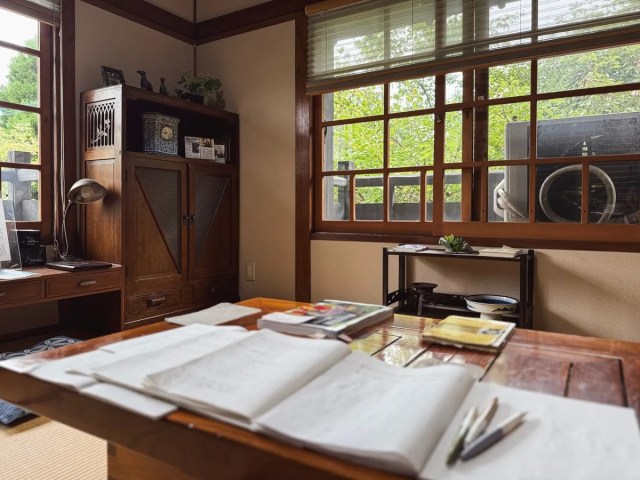
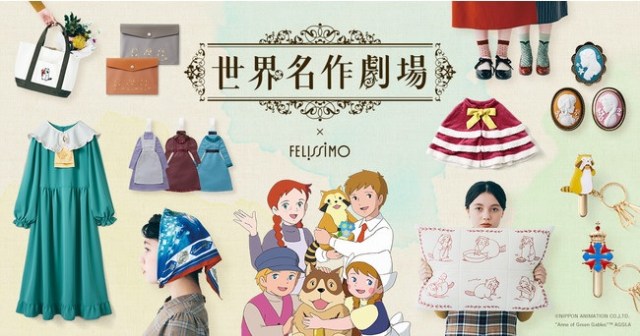


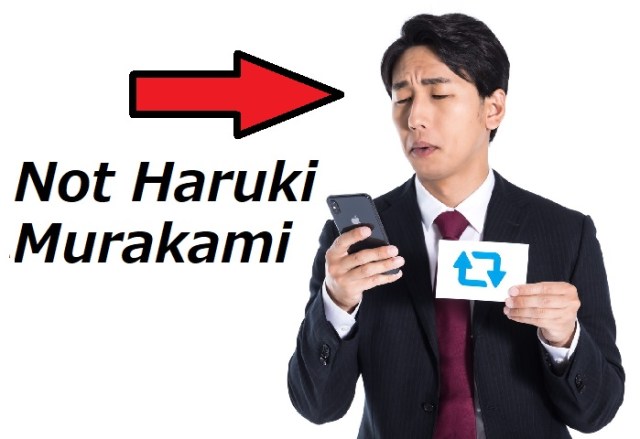

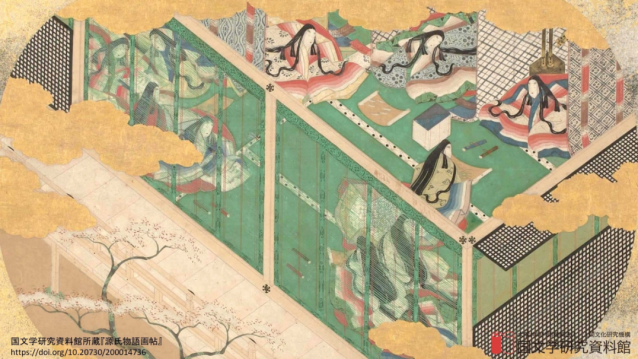
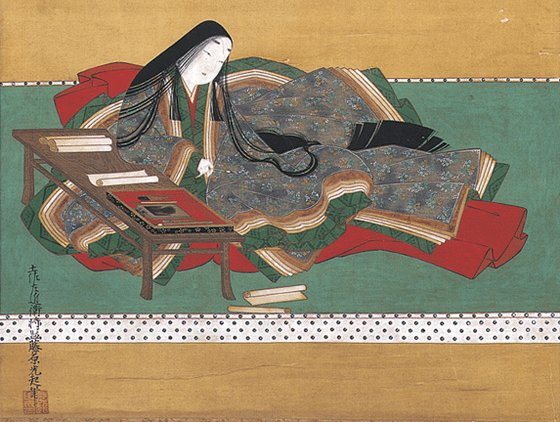
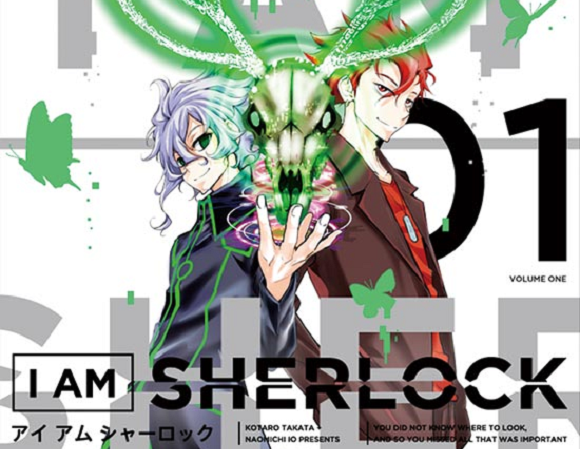
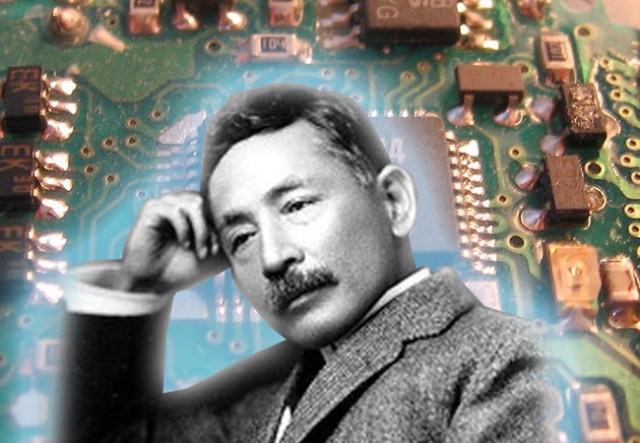
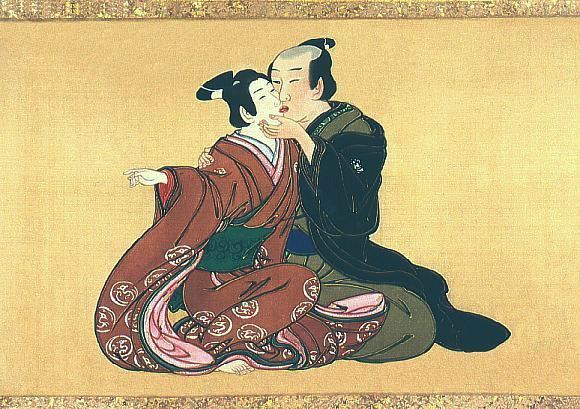
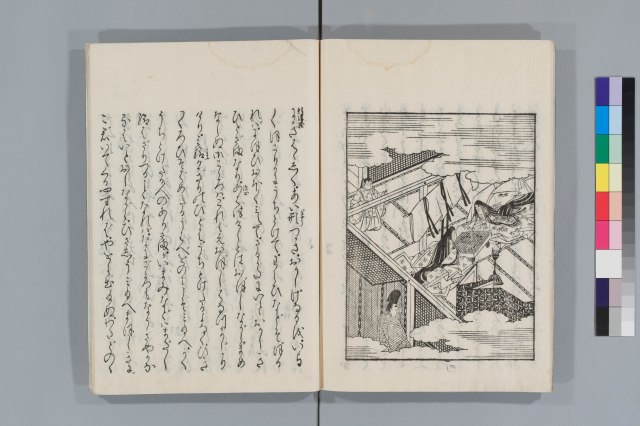
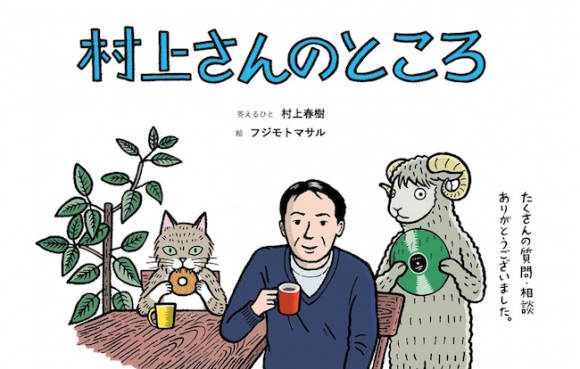
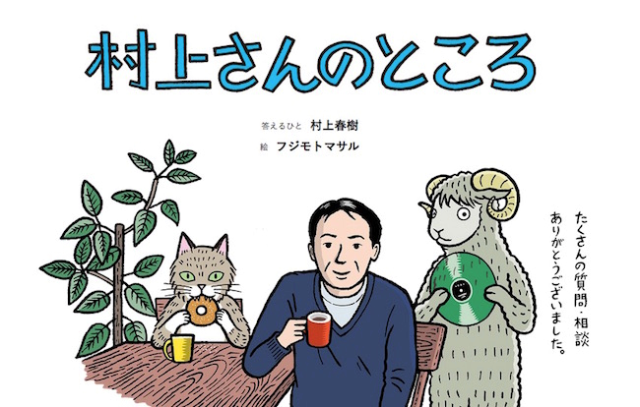
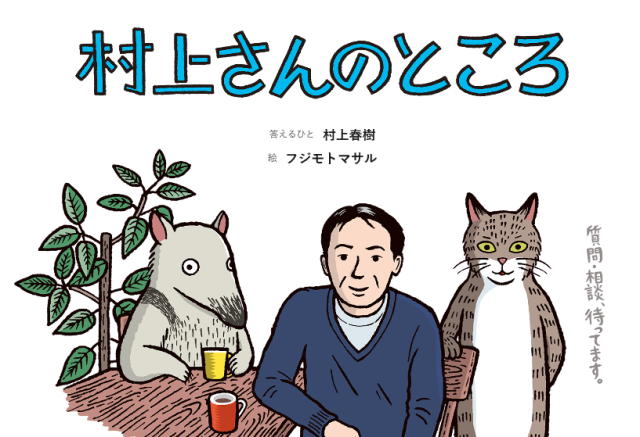
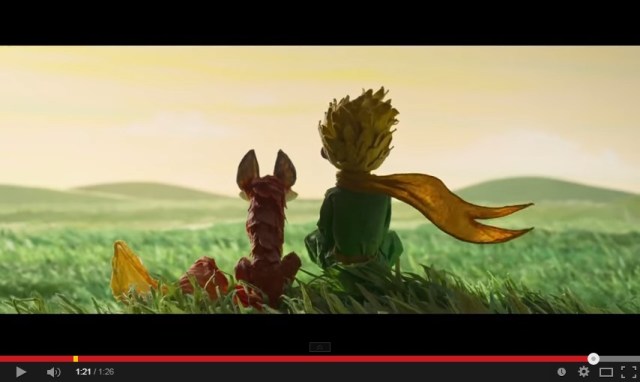
 Three beautiful places to see Japan’s plum blossoms after starting your day in downtown Tokyo
Three beautiful places to see Japan’s plum blossoms after starting your day in downtown Tokyo Japan’s first all-matcha ramen restaurant is now open in Kyoto【Photos】
Japan’s first all-matcha ramen restaurant is now open in Kyoto【Photos】 A spotlight on Japanese singles figure skating: Jumping into the 2026 Olympics【Pt. II】
A spotlight on Japanese singles figure skating: Jumping into the 2026 Olympics【Pt. II】 Is China’s don’t-go-to-Japan warning affecting the lines at a popular Tokyo gyukatsu restaurant?
Is China’s don’t-go-to-Japan warning affecting the lines at a popular Tokyo gyukatsu restaurant? Convenience store onigiri rice balls become even more expensive…but are they worth it?
Convenience store onigiri rice balls become even more expensive…but are they worth it? Studio Ghibli releases new “komorebi” plush toys from Princess Mononoke and Spirited Away
Studio Ghibli releases new “komorebi” plush toys from Princess Mononoke and Spirited Away 420 million yen in cash-filled suitcases stolen on Tokyo streets, incidents at Haneda and Hong Kong follow
420 million yen in cash-filled suitcases stolen on Tokyo streets, incidents at Haneda and Hong Kong follow This Valentine’s Day tell your man how you truly feel — tell him with chocolate-covered KFC
This Valentine’s Day tell your man how you truly feel — tell him with chocolate-covered KFC 10 weird and funny things Japanese people do
10 weird and funny things Japanese people do Mist descends upon Japan’s “Killing Stone” after ceremony to appease nine-tailed fox spirit
Mist descends upon Japan’s “Killing Stone” after ceremony to appease nine-tailed fox spirit Yokai are descending upon Tokyo this spring in the latest immersive art experience
Yokai are descending upon Tokyo this spring in the latest immersive art experience New Studio Ghibli stamps leave an impression on your stationery…and your heart
New Studio Ghibli stamps leave an impression on your stationery…and your heart Cherry blossom forecasts map shows Japan’s OTHER sakura season is starting right now
Cherry blossom forecasts map shows Japan’s OTHER sakura season is starting right now Japanese women sound off on their minimum height requirements for a husband【Survey】
Japanese women sound off on their minimum height requirements for a husband【Survey】 Japanese man gets drunk and falls asleep on Tokyo streets, then gets robbed by foreign national
Japanese man gets drunk and falls asleep on Tokyo streets, then gets robbed by foreign national Japan has a new bar just for people thinking about quitting their jobs, and the drinks are free
Japan has a new bar just for people thinking about quitting their jobs, and the drinks are free Japan’s suicides fall to lowest recorded number ever, but one demographic hits all-time high
Japan’s suicides fall to lowest recorded number ever, but one demographic hits all-time high Starbucks Japan releases new drinkware and goods for Valentine’s Day
Starbucks Japan releases new drinkware and goods for Valentine’s Day Japan releases first official sakura cherry blossom forecast for 2026
Japan releases first official sakura cherry blossom forecast for 2026 10 times to avoid traveling in Japan in 2026
10 times to avoid traveling in Japan in 2026 Archfiend Hello Kitty appears as Sanrio launches new team-up with Yu-Gi-Oh【Pics】
Archfiend Hello Kitty appears as Sanrio launches new team-up with Yu-Gi-Oh【Pics】 Starbucks Japan releases new Frappuccino and latte for Valentine’s Day
Starbucks Japan releases new Frappuccino and latte for Valentine’s Day China’s don’t-go-to-Japan warning looks to be affecting tourist crowds on Miyajima
China’s don’t-go-to-Japan warning looks to be affecting tourist crowds on Miyajima Our 52-year-old pole dancing reporter shares his tips for achieving your New Year’s exercise goal
Our 52-year-old pole dancing reporter shares his tips for achieving your New Year’s exercise goal Ramen restaurant’s English menu prices are nearly double its Japanese ones, denies discriminating
Ramen restaurant’s English menu prices are nearly double its Japanese ones, denies discriminating Survey asks foreign tourists what bothered them in Japan, more than half gave same answer
Survey asks foreign tourists what bothered them in Japan, more than half gave same answer Japan’s human washing machines will go on sale to general public, demos to be held in Tokyo
Japan’s human washing machines will go on sale to general public, demos to be held in Tokyo We deeply regret going into this tunnel on our walk in the mountains of Japan
We deeply regret going into this tunnel on our walk in the mountains of Japan Studio Ghibli releases Kodama forest spirits from Princess Mononoke to light up your home
Studio Ghibli releases Kodama forest spirits from Princess Mononoke to light up your home Major Japanese hotel chain says reservations via overseas booking sites may not be valid
Major Japanese hotel chain says reservations via overseas booking sites may not be valid Put sesame oil in your coffee? Japanese maker says it’s the best way to start your day【Taste test】
Put sesame oil in your coffee? Japanese maker says it’s the best way to start your day【Taste test】 No more using real katana for tourism activities, Japan’s National Police Agency says
No more using real katana for tourism activities, Japan’s National Police Agency says Starbucks Japan reveals new sakura drinkware collection, inspired by evening cherry blossoms
Starbucks Japan reveals new sakura drinkware collection, inspired by evening cherry blossoms Updated cherry blossom forecast shows extra-long sakura season for Japan this year
Updated cherry blossom forecast shows extra-long sakura season for Japan this year Studio Ghibli releases new “komorebi” plush toys from Princess Mononoke and Spirited Away
Studio Ghibli releases new “komorebi” plush toys from Princess Mononoke and Spirited Away 420 million yen in cash-filled suitcases stolen on Tokyo streets, incidents at Haneda and Hong Kong follow
420 million yen in cash-filled suitcases stolen on Tokyo streets, incidents at Haneda and Hong Kong follow This Valentine’s Day tell your man how you truly feel — tell him with chocolate-covered KFC
This Valentine’s Day tell your man how you truly feel — tell him with chocolate-covered KFC 10 weird and funny things Japanese people do
10 weird and funny things Japanese people do Mist descends upon Japan’s “Killing Stone” after ceremony to appease nine-tailed fox spirit
Mist descends upon Japan’s “Killing Stone” after ceremony to appease nine-tailed fox spirit “Office lady in heels walking on tatami”: The mysterious world of Japanese fetishism
“Office lady in heels walking on tatami”: The mysterious world of Japanese fetishism Act of Japanese kindness touches one man’s heart, provides hope for elevator etiquette
Act of Japanese kindness touches one man’s heart, provides hope for elevator etiquette Japan’s job-quitting service claims bosses contact it to try to make their employees quit
Japan’s job-quitting service claims bosses contact it to try to make their employees quit Chocolate Totoro cream puffs and cakes coming to Japan’s Ghibli bakery for Valentine’s Day【Pics】
Chocolate Totoro cream puffs and cakes coming to Japan’s Ghibli bakery for Valentine’s Day【Pics】 Starbucks Japan reveals new sakura drinkware collection, inspired by evening cherry blossoms
Starbucks Japan reveals new sakura drinkware collection, inspired by evening cherry blossoms We really have a lot to learn from Japanese Mascot Character Parliament 【Video】
We really have a lot to learn from Japanese Mascot Character Parliament 【Video】 Roland, king of Japan’s host club scene, shows us his self-isolation routine【Video】
Roland, king of Japan’s host club scene, shows us his self-isolation routine【Video】 You can rest your chopsticks on a lot of different things in Japan
You can rest your chopsticks on a lot of different things in Japan